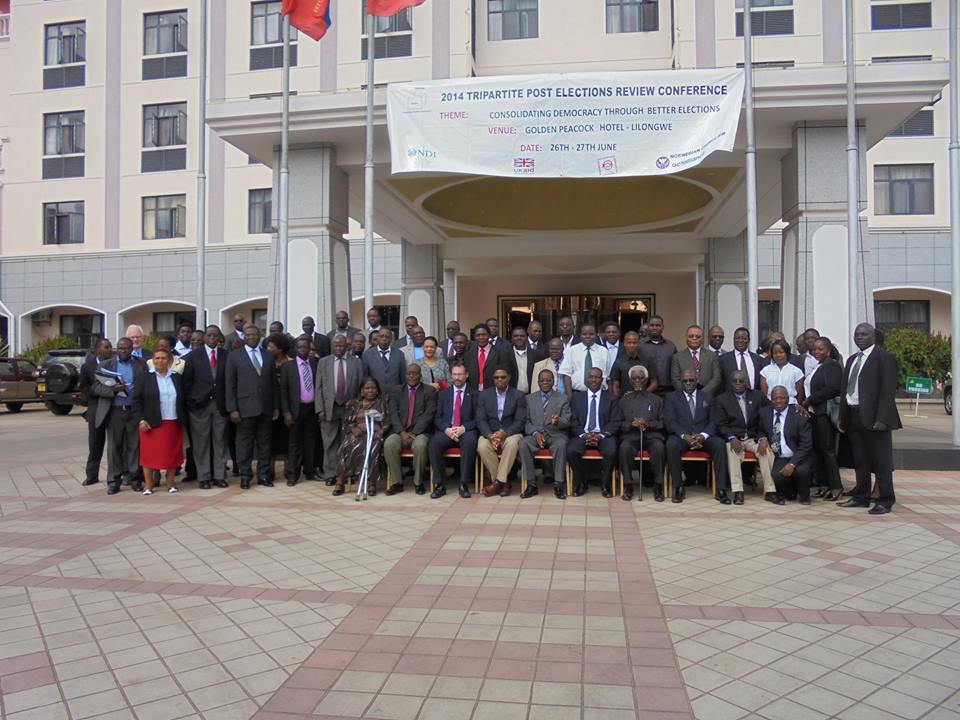EU’s Electoral Reform Guide Highlights GNDEM Members’ Strategies

Citizen election observation has grown over the past 30 years into a well-established, global movement for enhancing the integrity of elections. Citizen observer groups not only monitor election day processes, but are also involved in pre- and post-election processes and between elections. Groups’ assessments of electoral processes typically include reports at various stages of the election cycle, as well as recommendations on how to best address issues to bring the elections in line with regional and international standards and to improve future electoral processes.
However, citizen observer groups often turn to other priorities following elections, and -- without sustained, targeted demand for reforms -- these election observation recommendations can go unaddressed by electoral stakeholders. Citizen observer groups should advocate for reforms throughout the election period, including the post-election period and between elections. They should also monitor the degree to which electoral stakeholders have considered and implemented their recommendations prior to the next election.
Due to the importance of citizen observer groups maintaining a consistent, influential role in advocating for electoral reforms, the European Union’s (EU) ‘Supporting Democracy - A Citizens’ Organisations Programme’ created a Guide for Citizen Observers on Electoral Reform, to help them leverage this role.The guide focuses on two types of observation follow-up activities: electoral reform promotion and advocacy, and recommendations tracking and reporting. The former focuses on ways in which groups can strategically develop recommendations, how they can raise awareness of those recommendations, and how they can best target the necessary stakeholders to push for reforms to be implemented. The latter focuses on guidance to groups in monitoring progress of recommendations towards implementation. Ideally, these activities would be undertaken at the same time.
The guide provides explanations on a number of different methods citizen observer groups can utilize to promote electoral reform, such as post-election stakeholder roundtables, awareness-raising activities like public events and social media campaigns, election reform committees, expert analyses of legal commentaries, and the issuing of regular public reports on the status of recommendation implementation. It also offers advice on how groups should properly formulate recommendations, emphasizing that when drafting recommendations, it is essential to suggest meaningful reforms to address the problems identified by election observers during the election process. It goes on to describe how to analyze and prioritize recommendations, how to initiate effective post-election dialogue, how to promote electoral reform based on your selected recommendations, and how to maintain a relationship with stakeholders through the establishment of a target audience. The guide also provides helpful resources such as report templates and examples of good recommendations that groups can use as a basis for implementing the best practices in the guide.
The EU’s guide features several GNDEM members, including the Malawi Election Support Network (MESN), Acción Ciudadana (AC), the International Society for Fair Elections and Democracy(ISFED), Bersih 2.0, Transparencia Peru (AC), and the Coalition for Democracy and Civil Society and their experiences with electoral reform efforts.
Following the May 2014 tripartite elections, MESN utilized some of the strategies outlined in this guide. MESN issued a final election report with specific recommendations to address challenges identified through their observation of electoral processes. They then conducted a post-election review process, including three regional dialogue meetings and a national conference to finalize the reform priorities. MESN and the Malawi Election Commission (MEC) then partnered to create a task force to further engage in electoral reform priorities, and finally, in March 2017, the Law Commission submitted its report with draft bills on the laws to be changed, incorporating most of the Task Force’s recommendations. Throughout the process, MESN issued periodic public reports on the status of the electoral reform process and progress on the implementation of the recommendations. This helped boost transparency and carry momentum forward on electoral reform.
The 2015 elections in Guatemala were marred by a range of issues including campaign finance violations, electoral violence and barriers to participation for women and minorities. The Mirador Electoral coalition, which includes GNDEM member Acción Ciudadana, monitored these issues and others during the pre-election period and on election day. In the months following the elections, they helped advocate for their electoral recommendations to be included in the landmark Law on Elections and Political Parties (LEPP). The final LEPP reform package included about two-thirds of Mirador Electoral’s recommendations. Acción Ciudadana used its campaign finance monitoring effort to show that parties’ expenditures were greatly exceeding campaign income limits. This was vital because it indicated that parties weren’t actually disclosing all of their income, which helped strengthen demand for greater disclosure requirements on both income and expenditure; these were then included in the LEPP. AC’s and Mirador Electoral’s successes in electoral reform were particularly important as citizens and CSOs saw that their involvement and advocacy made a difference, opening opportunities for continued advocacy for additional reforms in the future.
The importance of citizen election observers cannot be overstated, especially in utilizing election data collected during observation of electoral processes, developing concrete recommendations for electoral stakeholders, and working to raise awareness and advocate for electoral reforms. This guide, is a step forward in consolidating best practices from citizen observer groups around the world, including many GNDEM members, and is a powerful tool to provide guidance to groups in advocating for and tracking electoral reforms.
 GNDEM
GNDEM